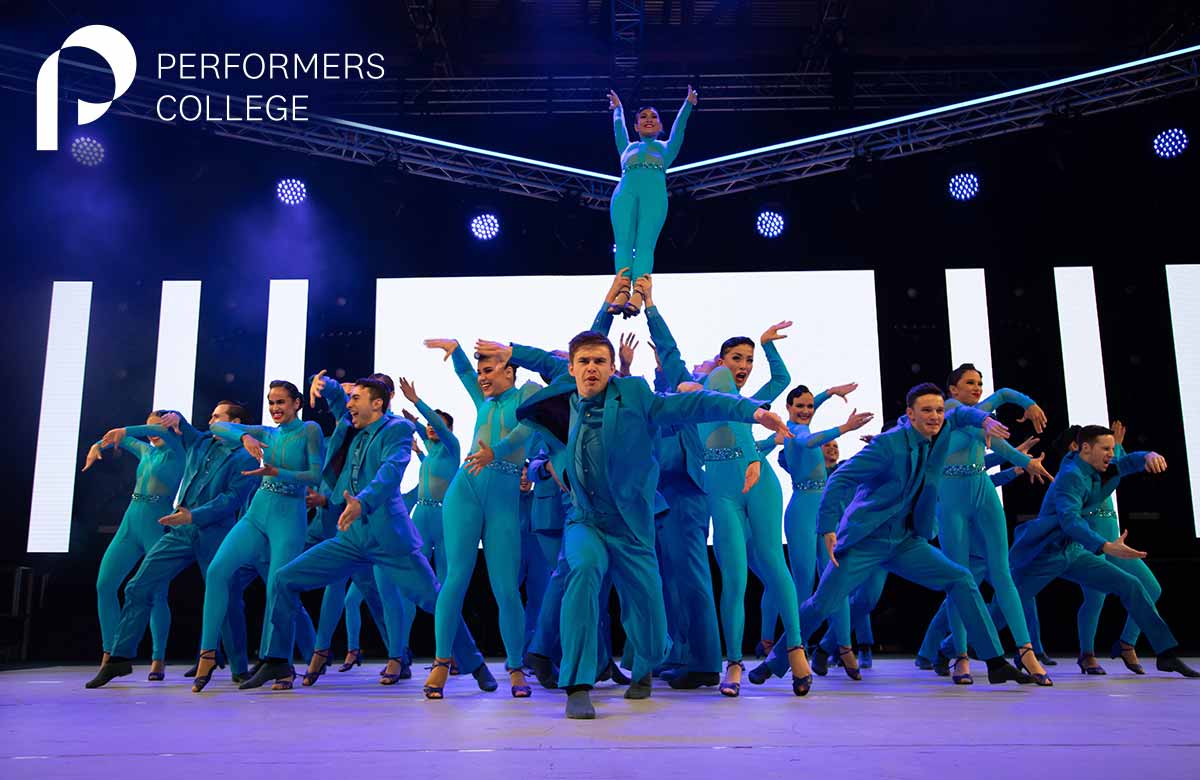Fast-forward: How ICTheatre and Performers College are reshaping training for a transformed industry
Combining a rigorous focus on core skills with training in the latest digital media, ICTheatre and Performers College offer a dynamic, flexible approach to prepare students for careers across a diverse range of performing arts
In the performing arts world, while the industry is reshaping and recovering, there are many opportunities for talented and well-trained graduates and an exciting future ahead. That’s why it is so important to provide training that not only equips students with the skills to find work in the future, but also empowers them to shape and sustain a career in a flexible, resilient and creatively fulfilling way.
Those are the aims of two leading training institutions in the UK: the Institute for Contemporary Theatre and Performers College.
ICTheatre was launched in 2017 and has swiftly earned a reputation for its rigorous, future-focused training, as well as the friendly family atmosphere at its sites in Brighton and Manchester.
Performers College has been running for more than 30 years from its campus in Essex, and over that time has become known as a leading UK provider of exceptional training that nurtures fantastic graduates. This year, the college welcomed its first cohort of students to its Birmingham campus, creating a new and vibrant community in the heart of the city’s creative quarter, Digbeth.
ICTheatre and Performers College are part of a wider group of creative colleges that offer degrees awarded by the renowned BIMM Institute. BIMM provides further and higher education for the creative arts in music and performance and embraces screen and film schools in Brighton, Manchester and Birmingham, as well as the Northern Ballet School in Manchester.
The ICTheatre and Performers College teams are proud to share the same ethos.
“The values and the drive behind what we do is the same,” says Adam Davenport, principal of Performers College, Birmingham. “We’re passionate about reaching new communities, and those young people who might never have considered they could afford or access high-quality vocational training. We want to say: ‘Look at this talent, this passion, this individual voice that you bring – that, with our support and training would be a fantastic addition to the contemporary industry.’
“Students may not yet know how complex the industry is, how to navigate it while it reforms or how to access student financial support, but we can help with that.”
Both ICTheatre and Performers College also pride themselves on caring about the development of students not just as performers, but also as individuals – as human beings.
“The fundamental thing about our training culture and ethos is that we believe you can have discipline, rigour and high-level professional expectations of people, alongside kindness and an atmosphere of collaboration, fun and laughter,” Davenport says “Those things can coexist. We expect the highest standards from our students, but within an environment where people feel valued, respect one another, feel safe to express themselves, to experiment and to create.”
Personal tutors guide students throughout their three years, with regular one-to-one check-ins. Student welfare and well-being is more important than ever, and support is available at all times: students can chat or be signposted to additional professional support where necessary.
The two institutions share a ‘curriculum spine’ in their academic offerings, focusing on entrepreneurship as well as contextual and cultural issues, encouraging students to learn about the creative sector, their place within it and how to sustain employment after graduation.
As Thomasina Unsworth, principal of ICTheatre Brighton, explains: “Success is not measured through obtaining big-ticket performance jobs alone. Success is being fulfilled, knowing who you are, being wonderfully trained but also equipped with transferable skills and the entrepreneurial ability to find work across a variety of industry related pathways.
“We have acting students who have discovered an aptitude for stand-up comedy. Others have written their own plays or directed films. We have graduates who have huge followings as influencers. We have composers, dancers, teachers, singers and podcast makers. We want to nurture and challenge our students to realise all the things that are possible out there. Our courses have been designed not only to train but also to expand the way students view the industry and to arm them with a multifaceted skill set.”
The detailed content of the courses differs between Performers College and ICTheatre. Performers College offers a three-year BA in Musical Theatre and Dance. Students hit the ground running with a year focused on core technical skills. There is intensive training in ballet, tap, jazz and contemporary, alongside classes in technical singing, ensemble singing, improvisation, voice and text, all delivered with high contact hours. Meanwhile, industry professionals come to the college on a weekly basis to build up students’ understanding of how the industry functions.
In the second year, students begin to specialise according to their skills and interests, and the final year builds towards full productions and agent showcases.
“Life at Performers college is fast-paced, and there are a lot of intensive training hours,” says Davenport. “All students work incredibly hard and by the time they’ve been through that evolution they are completely ready to immerse themselves in the professional environment of musical theatre.”
From September, Performers College will also offer a new BA course focusing on acting for stage, screen and digital media.
ICTheatre’s BA in Performing Arts allows students to choose between three different pathways: Contemporary Musical Theatre, Acting for the 21st Century or Hip Hop Artistry. From the outset, ICTheatre founder and creative director Mia Bird wanted to design a learning experience that is relevant to the industry as it is now.
The Musical Theatre pathway is a contemporary, 21st-century course, focused not only on the rigour of dance, acting and vocal training but also on devising and creating new musical theatre work. There are classes on aerial, puppetry and other diverse skills.
Likewise, the acting course does not simply focus on stage performance. Instead, it recognises that the work of actors today is much more multi-skilled, so students have the opportunity to learn about voice-overs, camera work, podcasting, interviewing skills, motion capture and acting for video gaming – “all the skills that a 21st-century performers needs to have”, Bird says.
The Hip Hop Artistry pathway is based around the five elements of hip hop and has become a hugely influential course, designed with the support of highly renowned performer Jonzi D. Bird says: “We’re looking at how we can bring a performer into a new, contemporary realm. That means not just seeing the West End as the only destination. We want to expand our students’ minds.”
At weekly ‘Options’ classes, students from any discipline can choose between different skills such as stand-up comedy or capoeira. “For example, we have somebody from the acting course who is on an opera option this week,” Bird explains. “It allows the students
to come together as a creative unit once a week, then collaborate together to build different skills.”
When applying through UCAS, students can specify which location they would like to attend – Birmingham or Essex for Performers College, Brighton or Manchester for ICTheatre – but both Davenport and Bird stress that there is flexibility throughout the application and audition process.
As for who should apply, Unsworth is clear that there is no such thing as a model applicant. “Talent comes in all shapes and sizes and from all backgrounds. And talent means nothing without curiosity, without passion, without a strong work ethic. Our applicants need to be prepared to be themselves, and willing to let their voices be heard. People who are prepared to be courageous and explore their creativity with a sense of ownership over their choices. People who recognise that the industry is broad and that there are many routes into it. People who will work hard even when they feel discouraged or depleted. People who view growth and development as an essential part of the process. People who find joy in what they do.”
Details: ictheatre.ac.uk; performerscollege.co.uk
The Big Idea
The Big Idea
Most Read
Across The Stage this weekYour subscription helps ensure our journalism can continue
Invest in The Stage today with a subscription starting at just £5.99





